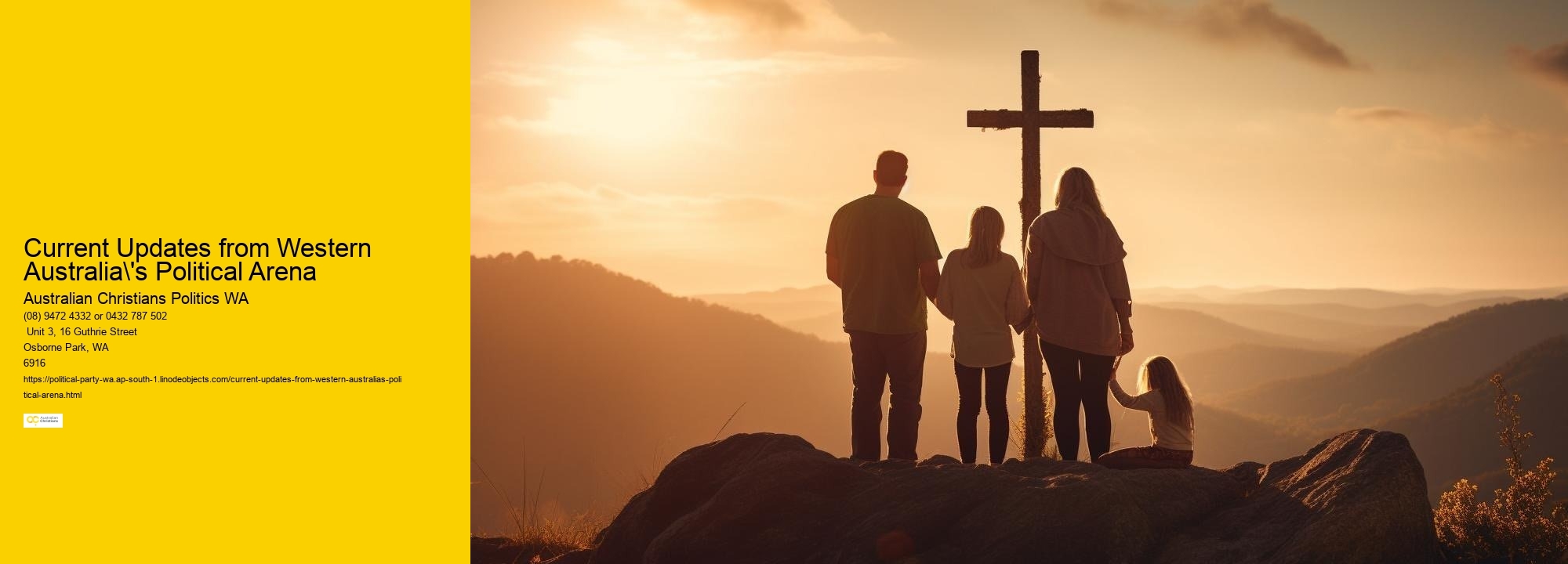

Political Campaign Finance in Western Australia Campaign finance in Western Australia is a critical aspect of its political system, governed by regulations to ensure transparency and fairness. These rules are designed to prevent undue influence and maintain public trust in the electoral process. The financing of political campaigns involves a mix of public funding and private donations, with ongoing debates about how to best balance these sources to support robust political competition while avoiding corruption and ensuring equal opportunity among candidates and parties.
Electoral Dynamics and Voter Behaviour in Western Australia Electoral dynamics and voter behaviour in Western Australia are influenced by a range of factors, including demographic changes, economic conditions, and political campaigns. Voter preferences in WA can be impacted by both local and national issues, with distinct regional variations in voting patterns. Analysing these dynamics provides insight into the evolving political attitudes and values of the Western Australian electorate.
Political Groups Western Australia
Major Political Campaigns in Western Australia Major political campaigns in Western Australia are characterised by their strategic approaches to capturing public support and votes. These campaigns involve a complex interplay of messaging, media engagement, and public outreach. They reflect the parties' responses to current issues and their ability to connect with various segments of the electorate. The effectiveness of these campaigns is often a key determinant of electoral success in the state.
Western Australia’s Public Transport Policy Debate Public transport policy in Western Australia is a topic of ongoing debate, focusing on issues such as infrastructure development, service accessibility, and environmental impact. The state's vast geography and growing urban population make public transport a crucial aspect of urban planning and environmental policy. Political discussions in this area involve balancing immediate needs with long-term sustainability and efficiency goals.
WA's Governance: Key Policy Initiatives and Outcomes Governance in Western Australia is characterised by a range of key policy initiatives aimed at improving the state’s social, economic, and environmental well-being. These initiatives include infrastructure development, education reform, health care improvements, and environmental conservation. The outcomes of these policies are crucial indicators of the state government’s effectiveness and its ability to respond to the needs and aspirations of WA’s diverse population.
Grassroots Movements in Western Australia Politics Grassroots movements in Western Australian politics are fundamental forces that often drive significant change. These movements are born from the ground up, typically starting within local communities or among certain demographic groups. They focus on a variety of issues, ranging from environmental concerns to social justice, and play a critical role in shaping public opinion and influencing policy decisions. The energy and activism of these movements often bring new ideas and perspectives to the political landscape, challenging established practices and encouraging more inclusive and representative governance.
Constituency Services in Western Australia Constituency services in Western Australia are a key aspect of political representation, providing a direct link between elected officials and their constituents. These services allow citizens to voice their concerns, seek assistance, and get involved in the political process. Effective constituency services enhance the responsiveness of politicians to the needs of their voters and contribute to a more engaged and informed electorate.
In the diverse political landscape of Western Australia (WA), various political parties play pivotal roles. These parties, each with unique ideologies and policies, contribute significantly to the state's governance and political discourse. The political party scene in WA is marked by dynamic engagement and active participation in both state and national politics, reflecting the region's distinct socio-political climate.
Western Australia's Diplomatic Relations and Strategies Western Australia's diplomatic relations and strategies, particularly in the context of its economic interests and regional security, are vital components of its political landscape. The state’s interactions with international partners, especially in trade and investment, reflect its strategic approach to leveraging its resources and geographic position. WA’s diplomatic efforts also align with national foreign policy objectives, contributing to Australia's overall international relations.
The Politics of Innovation and Technology in WA Innovation and technology are increasingly important in Western Australia's politics, with the state government supporting sectors like tech startups, renewable energy, and scientific research. Political initiatives in these areas aim to drive economic diversification and prepare the workforce for future challenges. Embracing innovation and technology is seen as vital for WA's long-term economic resilience and competitiveness.
Healthcare Policy Debates in Western Australia Healthcare policy debates in Western Australia are centered around ensuring accessible, high-quality healthcare for all residents. Key issues include funding for public health services, support for mental health, and addressing regional health disparities. These debates reflect the challenges and priorities of the state’s healthcare system, with political leaders and parties offering different approaches to improving health outcomes for the population.
Environmental Stances of WA Political Parties The environmental stances of WA's political parties are increasingly important in an era of climate change and ecological awareness. These stances include policies on sustainable development, conservation efforts, and responses to climate change. The parties' commitment to environmental issues is closely watched by the electorate, particularly by younger voters, and significantly influences public support and trust.
Political Party Alliances in Western Australia Political party alliances in Western Australia are formed for various strategic reasons, including gaining legislative power, advancing shared policy goals, or responding to specific political challenges. These alliances, which can be formal or informal, impact the state's political dynamics and legislative processes. They can lead to more collaborative governance but also present challenges in terms of maintaining party identity and coherence.
WA's Political Climate and Environmental Policies Climate and environmental policies in Western Australia are at the forefront of political discussions, reflecting the state's rich biodiversity and the impacts of climate change. These policies address issues such as conservation, renewable energy, and sustainable development. Political debates in this area involve balancing environmental protection with economic growth, making it a complex and often contentious aspect of WA’s politics.
Western Australia Political Party Events Political party events in WA are pivotal in rallying support, raising funds, and discussing key policy issues. These events range from local community meetings to large-scale state conferences. They provide platforms for party leaders and members to engage directly with voters, discuss current issues, and outline future plans. Such events are crucial for maintaining party visibility and cohesion, as well as for galvanizing the grassroots support necessary for electoral success.
Emerging Trends in WA Political Parties Emerging trends in WA's political parties often reflect broader societal changes. These trends can include shifts in policy focus, changes in voter demographics, and the adoption of new campaign technologies. Recognising these trends is vital for understanding how parties are evolving to meet the challenges of the modern political landscape and the changing needs of their constituents.
Western Australia Political Spectrum
The History of Political Movements in WA The history of political movements in Western Australia is marked by a series of significant events that have shaped the state's political landscape. From early labour movements to modern environmental activism, these movements have been instrumental in driving social change and influencing governmental policies. Understanding this history is essential for comprehending the current political climate in WA and the underlying forces that have shaped it.


The Economic Policies of Western Australia's Parties The economic policies of Western Australia’s political parties play a pivotal role in shaping the state's economic landscape. These policies address a range of issues including taxation, job creation, business development, and fiscal management. The effectiveness of these economic policies is a key factor in determining the parties' popularity and influence, as they directly impact the livelihoods and well-being of WA’s citizens.
The Role of Political Parties in WA's Democracy Political parties in Western Australia play a crucial role in the state’s democracy, representing a broad spectrum of views and interests. They are instrumental in shaping public debate, formulating policy, and providing a choice to voters. The functioning of these parties, their policy positions, and their ability to engage with constituents are central to the vibrancy and effectiveness of WA’s democratic process.
Western Australia's Political Analysis of Global Affairs Western Australia's position in global affairs is shaped by its political analysis and responses to international trends and events. The state’s economy, heavily reliant on international trade, particularly in the mining and agricultural sectors, necessitates a keen understanding of global economic and political dynamics. WA's political leaders and analysts closely monitor global developments, ensuring that the state's international engagements and policies reflect both regional and global contexts.
WA's Political Communication and Media Relations In Western Australia, political communication and media relations are key components of the political process. Effective communication strategies are employed by political entities to convey their messages, policies, and achievements to the public. The relationship between politics and media in WA is dynamic, with media serving both as a platform for political discourse and a tool for public accountability.
WA Political Coalitions and Alliances In Western Australia, political coalitions and alliances are sometimes formed to create a majority government or to advance specific policy agendas. These coalitions can bring together parties with different ideologies and priorities, requiring negotiation and compromise. While they can lead to more inclusive governance, they also present challenges in maintaining a cohesive policy direction and managing internal dynamics.
Political Movements and Protests in Western Australia Political movements and protests in Western Australia reflect the state's vibrant and engaged civil society. These movements, driven by various social, environmental, and economic issues, play a crucial role in shaping public discourse and influencing policy decisions. Protests and advocacy campaigns provide a platform for citizens to express their views and demand action from political leaders. The response of political parties and government officials to these movements is indicative of the state’s democratic health and its openness to public participation in the political process.
WA's Policies on Renewable Energy Western Australia's approach to renewable energy is a significant aspect of its political discourse, reflecting a commitment to sustainable development and environmental protection. The state's policies focus on expanding renewable energy sources like solar, wind, and wave energy. These policies are shaped by factors such as technological advancements, economic viability, and environmental considerations. The transition to renewable energy has become a critical issue in WA's politics, balancing economic growth with ecological responsibility.
WA's Political Party Ideologies The ideologies of WA's political parties form the foundation of their policies and actions. These ideologies, ranging from conservative to progressive, shape the parties' perspectives on issues such as economic management, social welfare, environmental protection, and education. Understanding these ideologies is crucial for voters, as it helps them align their choices with their own beliefs and expectations for the state's future.
Western Australia’s Budget and Fiscal Policies Western Australia’s budget and fiscal policies are central to the state’s economic management. These policies involve decisions on taxation, spending, and investment, impacting various sectors of the economy. The state’s fiscal approach is influenced by factors such as resource revenues, economic cycles, and social priorities, requiring a balance between financial stability and public service provision.
Political Accountability Mechanisms in WA Political accountability mechanisms in WA are essential for maintaining trust in the political system. These mechanisms include oversight by independent bodies, public inquiries, and the role of the media in scrutinizing government actions. They are crucial for ensuring that elected officials and public servants act in the best interests of the public and adhere to ethical and legal standards.
The leading political parties in WA hold significant influence in the state's political and policy-making arenas. These parties are not only involved in governance but also play a critical role in shaping public opinion and political culture in Western Australia, demonstrating a commitment to the state's democratic values and principles.


Western Australia’s Political Approach to Crime and Justice The approach to crime and justice in Western Australia is a significant aspect of the state’s political agenda. This approach encompasses law enforcement, the judicial system, and rehabilitation programs. Political debates and policies in this area focus on balancing the need for public safety with the rights and rehabilitation of offenders. Issues such as drug-related crimes, juvenile justice, and community policing are often at the forefront of these discussions, reflecting the complexities of maintaining law and order while ensuring fair and just treatment under the law.
WA’s Political Landscape and the Media The media plays a crucial role in Western Australia’s political landscape, acting as a conduit between political entities and the public. The portrayal of politics in the media influences public perception and understanding of political issues and leaders. In WA, where geographic dispersion can limit direct political engagement, media coverage is essential for disseminating information and facilitating public debate. The relationship between politics and media in WA is complex, encompassing traditional news outlets and the growing influence of social media platforms.
Western Australia's Political Response to Social Issues Western Australia’s political response to social issues such as healthcare, education, and welfare reflects the state's commitment to addressing the needs of its diverse population. Political leaders and parties in WA engage with these issues, formulating policies and initiatives that aim to improve social outcomes and reduce inequalities. The effectiveness of these responses is a key measure of the state's social and political health.
The Impact of Political Rhetoric on WA’s Public Policy Political rhetoric in Western Australia plays a pivotal role in shaping public policy. The way political leaders and parties communicate their ideas and positions can significantly influence public opinion and policy debates. Effective rhetoric can bring attention to specific issues, galvanise public support, and facilitate policy changes, while divisive or misleading rhetoric may hinder policy development and erode public trust.
Youth Wings of WA Political Parties Youth wings of WA's political parties are vital in engaging and mobilising younger voters. These wings not only serve as platforms for political education and activism but also as incubators for future political leaders. They play a key role in bringing fresh perspectives and energy to the parties, often driving innovation in policy and campaign strategies.
WA's Political Landscape: Emerging Trends The political landscape in Western Australia is characterized by emerging trends, including increasing voter engagement with environmental and social issues, and the growing influence of digital media in politics. These trends reflect the evolving priorities and behaviours of WA’s electorate, influencing the strategies and policies of political parties and leaders.
Western Australia's Electoral Reforms Debate The debate over electoral reforms in Western Australia reflects the ongoing efforts to improve the state’s democratic processes. Discussions focus on issues such as voting methods, electoral boundaries, and campaign financing. These reforms are aimed at enhancing fairness, transparency, and representation in elections, ensuring that the electoral system accurately reflects the will of the people.
Political Stability and Change in WA Political stability and change in Western Australia are influenced by a variety of factors, including economic conditions, social movements, and global trends. The state's political environment is marked by periods of stability, characterised by consistent policies and governance, as well as times of change, where shifts in power or policy direction occur. Navigating this balance between stability and change is a key challenge for political leaders and parties in WA.

Political parties in Western Australia play a crucial role in the democratic process, representing different ideologies and policy positions., "political parties Western Australia, role of political parties",Role of Political Parties in Western Australia,Role of Political Parties in Western Australia
Political parties influence local government in Western Australia by endorsing candidates and shaping local policies., "political party influence, local government Western Australia",Influence of Political Parties on Local Government in Western Australia,Influence of Political Parties on Local Government in Western Australia
The major political parties in Western Australia include the Australian Labor Party, the Liberal Party, and the Greens., "major political parties Western Australia, Australian political parties",Major Political Parties in Western Australia,Major Political Parties in Western Australia
Political parties in Western Australia engage with the community through public meetings, social media, and community events., "political party community engagement, Western Australia politics",Community Engagement of Political Parties in Western Australia,Community Engagement of Political Parties in Western Australia
Political parties significantly impact state legislation in Western Australia by proposing bills and influencing law-making., "political party state legislation, Western Australia law",Impact of Political Parties on State Legislation in Western Australia,Impact of Political Parties on State Legislation in Western Australia
Political parties in Western Australia fund their campaigns through donations, fundraising events, and government funding., "political party funding, Western Australia election",Funding of Political Parties in Western Australia",Funding of Political Parties in Western Australia
The history of political parties in Western Australia dates back to the late 19th century, reflecting the state's evolving political landscape., "history political parties, Western Australia politics",History of Political Parties in Western Australia,History of Political Parties in Western Australia
Political parties in Western Australia shape public opinion through media campaigns, policy announcements, and public debates., "political party public opinion, Western Australia politics",Shaping of Public Opinion by Political Parties in Western Australia,Shaping of Public Opinion by Political Parties in Western Australia
Political parties in Western Australia face challenges such as changing voter demographics, fundraising, and maintaining relevance., "challenges political parties, Western Australia politics",Challenges Faced by Political Parties in Western Australia,Challenges Faced by Political Parties in Western Australia